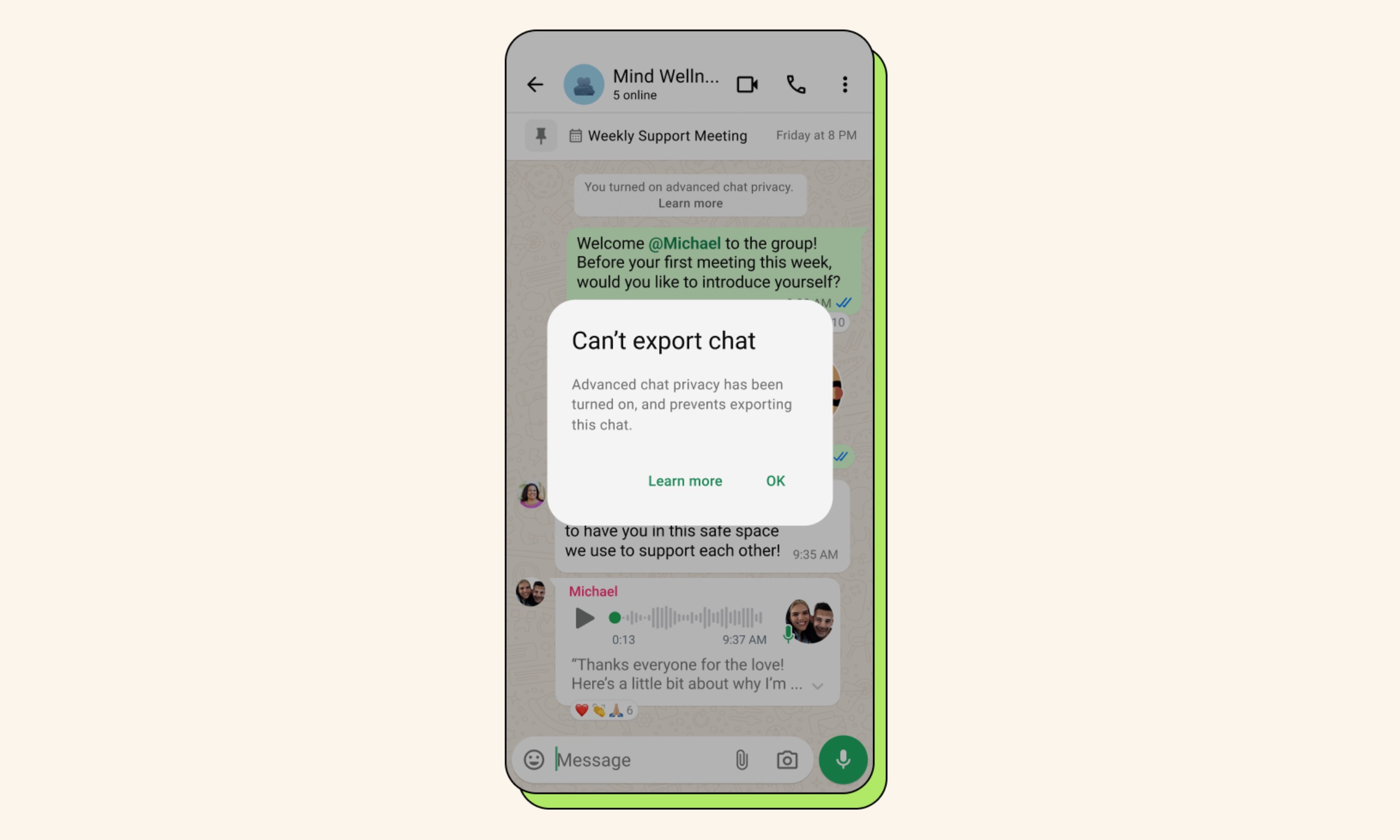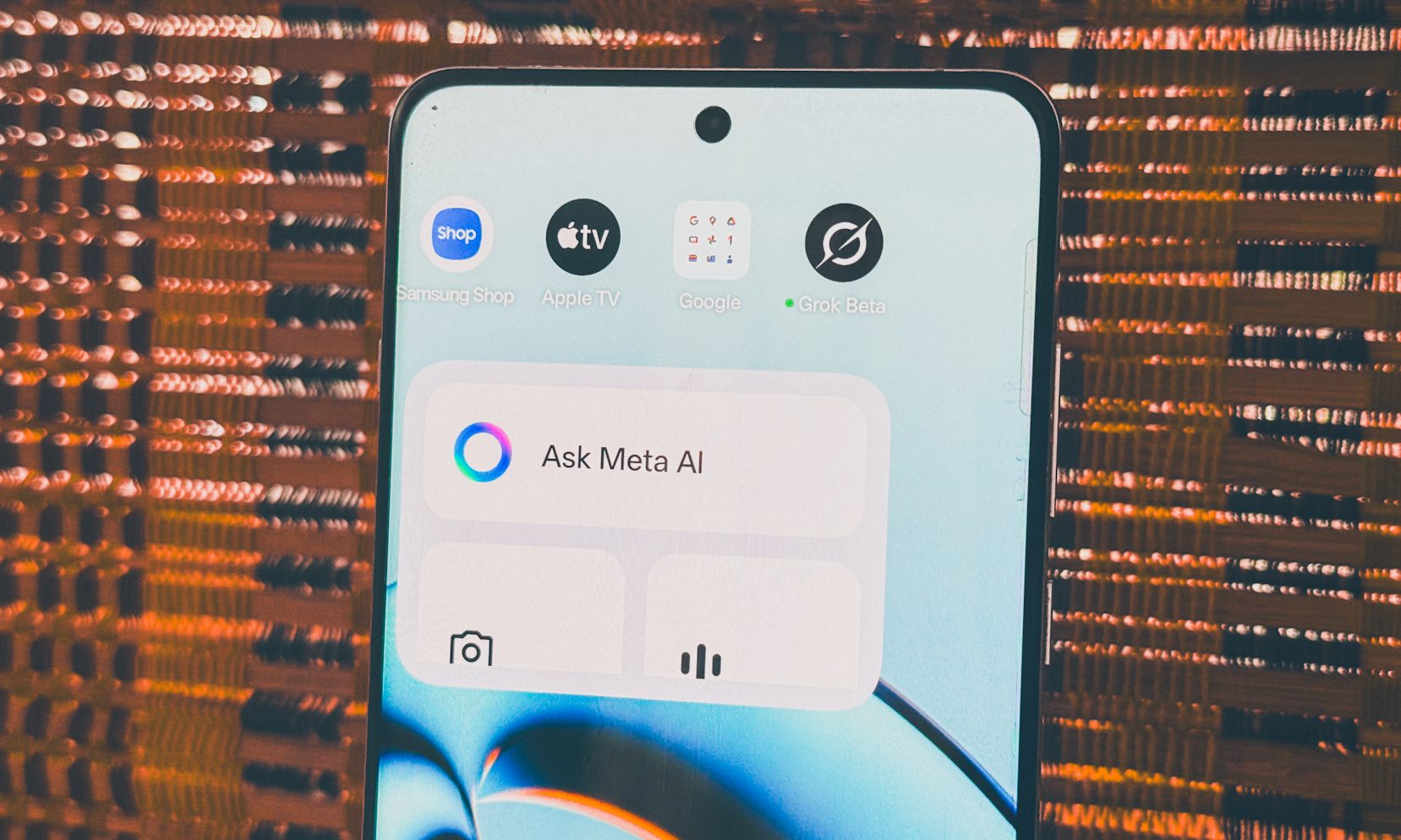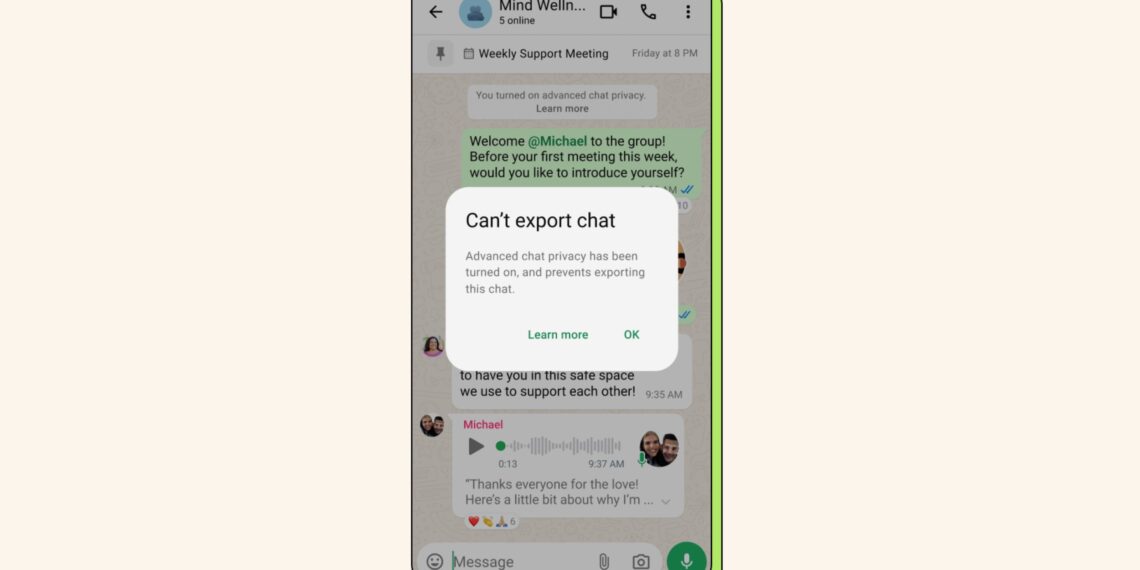WhatsApp conversations serve a purpose that goes beyond casual chats with loved ones. They have been instrumental in various movements, from pro-democracy demonstrations in Hong Kong to medical rescue efforts in war-torn regions, as well as in environmental advocacy and political activism. However, the risk of information leaks can jeopardize the safety of group chat participants significantly.
To address these digital threats, WhatsApp is introducing a new feature aimed at enhancing privacy: Advanced Chat Privacy. This update restricts any group member from exporting chat histories, whether in group settings or private one-on-ones.
Currently, all users can export chats, including group conversations, regardless of their admin status. They can choose to create a backup that includes the text only or opt to include shared media files as well.

In addition to preventing chat exports, the new feature disables automatic downloading of images and videos shared within group chats. According to WhatsApp, this ensures that all chat members can feel secure knowing that their conversations won’t be leaked outside the group.
Activating Advanced Chat Privacy is simple: users just need to tap on the chat name at the top of their screen and toggle the feature to “On.” This update is currently being rolled out to all WhatsApp users on both Android and iOS.
Restricting Meta AI
An additional point of interest is that this tool also prevents users from having their messages utilized for AI functionalities. Meta had integrated its AI capabilities into the messaging platform months ago, allowing users to communicate with a chatbot and request image generation.

This could be quite beneficial for businesses; however, in group chats, it may lead to an influx of unnecessary content. The recent phenomenon known as “Ask Grok” on X illustrates how an AI chatbot can ignite ideological debates on social media.
Moreover, the introduction of Meta AI has raised regulatory concerns. Although Meta claims that the AI feature is optional, it cannot be disabled completely. While the AI itself does not access personal messages, all interactions with it contribute to the training of the AI system.
The UK’s Information Commissioner’s Office has indicated to the BBC that it is keeping an eye on the usage of AI within WhatsApp. On the flip side, Meta insists it is attentive to user feedback, promoting it as a beneficial option for users.






